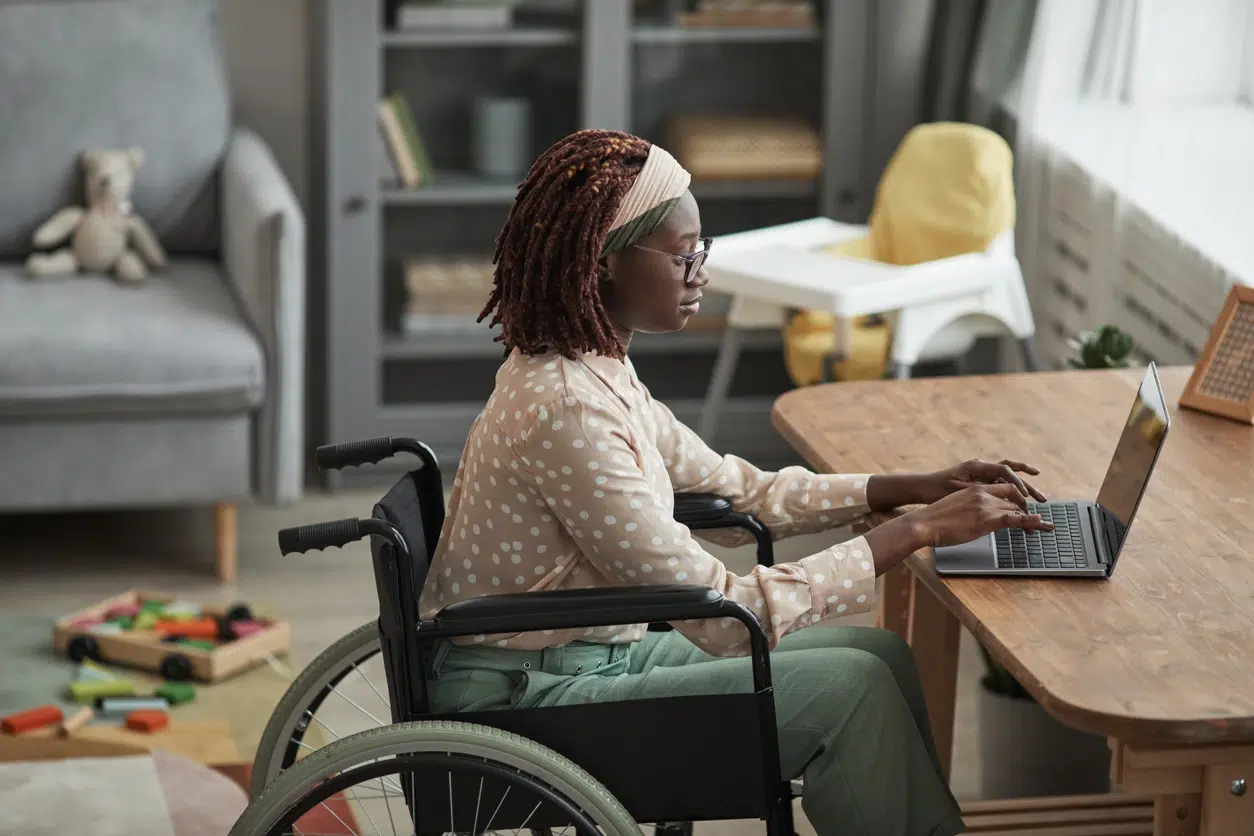The COVID-19 pandemic brought an abrupt shift to remote work for millions of Americans. For many workers, the shift to remote work was a pandemic perk for the flexibility it allowed. For people with disabilities, the shift to remote work made the workplace more accessible than it had been before. Nearly three years later, while many workplaces have reopened their office doors for in person work, COVID-19 has ushered in an era of flexible telework that is likely here to stay in many industries. While the pandemic was undoubtedly devastating, and particularly difficult for people with disabilities, the normalization of telework is a workplace accessibility plus that will have lasting positive effects.
The Covid-19 Workplace Accessibility & Remote Work Paradigm Shift
In addition to normalizing remote work, COVID-19 ushered in changes in employment and accommodations practices. According to a survey study of 3,800 supervisors conducted by researchers at the University of New Hampshire’s Institute on Disability, 78% of supervisors reported that their workplace established or changed their accommodations policies and practices since the pandemic began. Researchers also found that supervisors were significantly more likely to express that accommodating people with disabilities was “very important,” than they were prior to the pandemic.
November 2022 Saw The Lowest Rate of Unemployment of Disabled Americans Since Record Keeping Began in 2008.
As employment attitudes and practices have been evolving, the employment of people with disabilities has been on the rise. According to the U.S. Bureau of Labor Statistics, the unemployment rate of disabled Americans fell to 5.8% in November of 2022. 5.8% is the lowest rate of unemployment of disabled Americans reported by the Bureau since their record keeping began in 2008; the reported rate has typically been in double digits. Likewise, employment of people with disabilities is up almost 25% since the beginning of the pandemic, which is significantly higher than the rest of U.S. employment.
The conditions created by the pandemic, including acceptance of remote work and new focus on accommodation, opened up new opportunity for disabled employees in the workforce. As we recover from the pandemic and many offices return to work in person, it is important that we not lose the gains made in employment opportunity and accessibility for disabled workers. Telework should be considered a reasonable accommodation for many jobs, and be a continued accommodation for disabled employees who need to work from home.
The ADA and Workplace Accommodations
The Americans with Disabilities Act requires that employers provide reasonable accommodations to qualified employees with disabilities. Legally, an employee need only show that the requested accommodation is reasonable on its face, and the employer must either grant the requested accommodation or show special circumstances that demonstrate undue hardship. An undue hardship entails a significant difficulty or expense.
Prior to the pandemic, employers have largely argued that physical attendance at work is essential to performing a job, and courts often agreed, rejecting requests for telework as a reasonable accommodation. After almost three years in which telework has been shown to be successful, it will be much harder for employers to argue that physical attendance at work is essential to performing a job, or that allowing an employee to work remotely constitutes any undue hardship. For employees who need to stay home for their health, and who can perform job duties remotely, telework should be considered a reasonable accommodation under the ADA for many job positions.
Avloni Law: A Disability Discrimination Law Firm
We are hopeful that the lessons learned during the pandemic surrounding telework and the importance of accommodating employees will persist, and more workplaces will continue to provide remote work as a reasonable accommodation. It is essential that employees with disabilities continue to have opportunity and access to the workplace. If your employer has refused a requested accommodation, or forced you to return to the office against your medical needs, please reach out to us at Avloni Law. We represent clients across California, with offices in Los Angeles, San Jose, and San Francisco.

